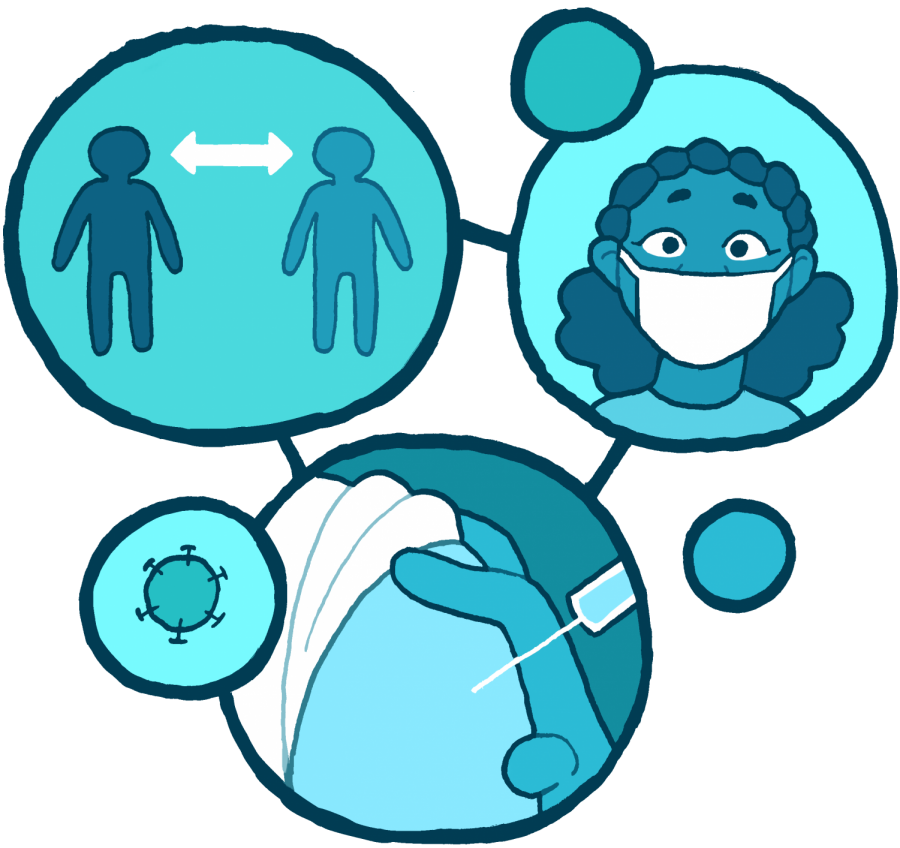A student’s guide to avoiding COVID-19 infection and impact
August 29, 2021
As UT eases back into in-person learning, campus floods with returning students causing many to fear a resurgence of COVID-19 cases within the UT community throughout the semester.
With the help of medical experts and those who contracted COVID-19 in the past, The Daily Texan compiled a quick list of tips and tricks to help students avoid contracting the virus and minimize its impact on the UT community.
Do “The Basics”
When Jake Cosgrove, Middle Eastern studies and international relations and global studies sophomore, arrived on campus last August, he said he didn’t think much about navigating COVID-19 infections.
“There wasn’t a huge plan,” Cosgrove said. “I got to school and was like, ‘Oh yes, this is something I have to deal with.’”
By September, he, his roommate and his entire floor at The Castilian, contracted COVID-19. This year, Cosgrove came prepared.
“(The) main approach (is) get vaccinated,” Cosgrove said. “That’s the most important thing.”
Dr. Amy Young, vice dean of professional practice at Dell Medical School, said she agrees completely.
“The big basic is to get vaccinated,” Young said. “It has the biggest role in preventing you from getting infected.”
According to the Centers for Disease Control and Prevention, the Pfizer vaccine prevents COVID-19 hospitalizations at a level of 91% and Moderna at 96% for those who are younger than 75.
After vaccination, Dr. Rama Thyagarajan, an infectious diseases specialist and Dell Medical School professor, said regularly wearing masks best reduces disease spread.
She suggested masking indoors until cases drop drastically and outdoors when crowded.
Monitor Symptoms and Get Tested When Possible
While vaccinations and masking serve as a strong first defense against COVID-19, Thyagarajan also advocated students track their everyday health for COVID-19 indicators.
“Be alert for any mild symptoms,” Thyagarajan said. “Even if something does not feel right, like unexpected tiredness, sore throat, get tested at UHS.”
University Health Services recommends students participate in proactive community testing up to twice a week. Young said catching infections early enables the UT community to localize and minimize disease spread.
“Do some regular testing,” Young said. “If somebody does get exposed, getting tested is sort of getting taken out of circulation.”
Avoid Unnecessary Travel
To minimize spread to the greater Texas population, students may want to avoid nonessential contact with others.
“I would recommend to somebody who’s engaged in some high-risk activities or behaviors that they not go home for at least seven to 10 days in order to decrease the chance that they could spread it,” Young said.
Be a Role Model
For those concerned about spread, Young suggested taking on a compassionate, leadership role in their community by modeling behaviors that decrease transmission.
For student organizations, that may mean sponsoring vaccine sites or promoting vaccinations. For housing communities, that could be as simple as a group trip to UHS for proactive community testing.
“It’s a real opportunity for those types of people that are either recognized or unrecognized leaders to lead by example,” Young said. “It will go a long way in helping keep our campus safe.”



